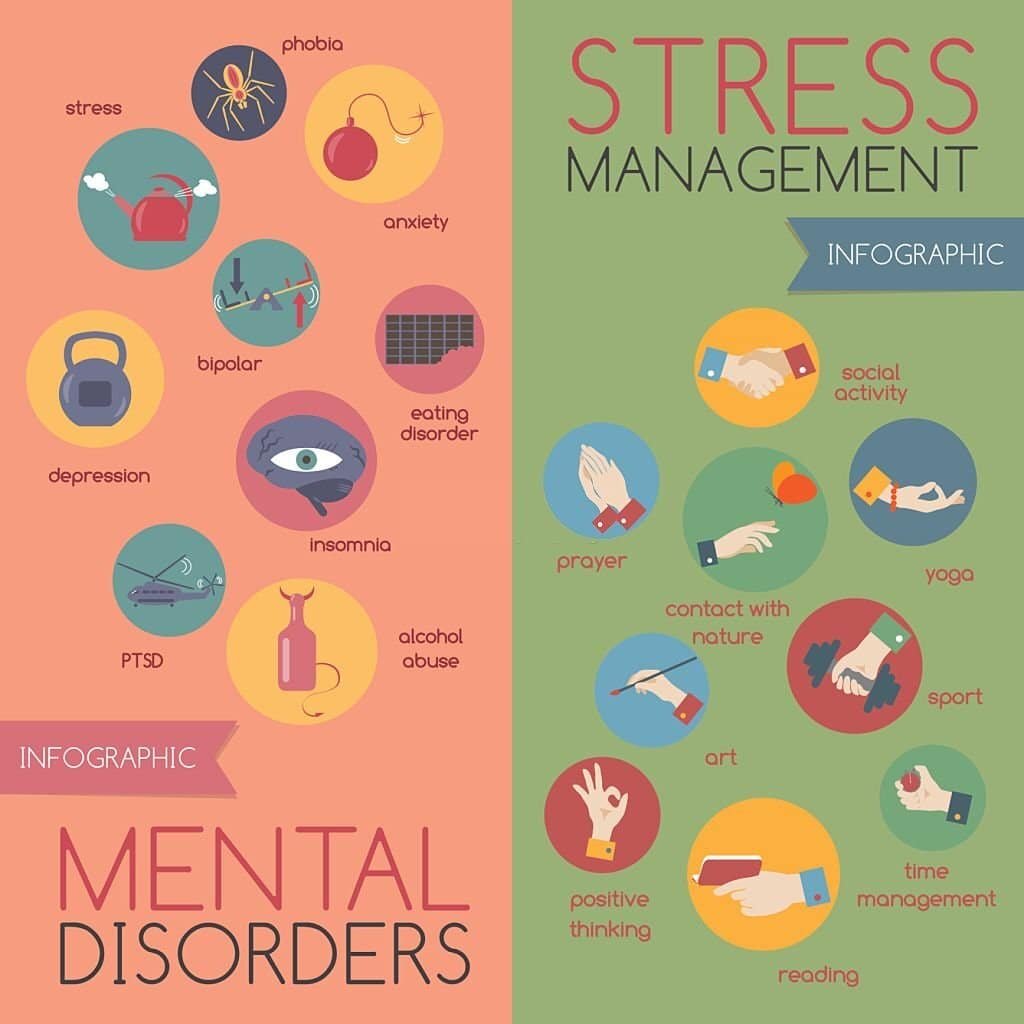If you have ever had a mental health crisis (and it’s estimated that one in four of us will have a mental health issue in our lifetime), you’ll know that just identifying the mental health crisis is a huge hurdle, and actually dealing with it is a separate one entirely.
Working in a fast-paced and heavy-stress environment as we find ourselves working in 2021, the focus on looking after our mental wellbeing is slowly sharpening.
As members of the public, we are encouraged to take regular breaks at work – but what about at university? How much time should there be set aside for lectures, building projects, and other self-directed development opportunities?
As university staff also increasingly become members of precarious workforces, this is increasingly an important question.
Who Deals With Mental Health Medically?
Medically speaking, professionals within the healthcare sector are specifically trained and employed to look after mental health issues.
They might be clinical psychologists, psychiatrists, or clinical nurse specialists. Each of these has different training and will deal with different types of problems.
The healthcare sector has specific nurses who are trained to deal with clinical mental health problems, which often act as the first point of call.
What Are The Differences?
At the most basic level, a psychiatrist will have a medical degree that is primarily concerned with anatomy and physiology. They will never have been through counseling sessions or any form of therapy themselves and primarily focus on drugs as a form of treatment for mental health problems. Although there is a place for these medications in some people’s lives, perhaps as a bridge to help engage with the counseling process, guidelines advise against being given drugs before being offered psychological therapies.
If you’re experiencing mental health problems, it’s a good idea to either contact your family care provider or the college counseling services directly to talk things through with someone who is specifically trained in dealing with mental health issues.
What Is The Role Of Counselling And Psychotherapy In Mental Health?
Of course, there are also other ways for us to look after our mental wellbeing outside of traditional medical methods. Indeed, many medical professionals use cognitive behavioral therapy as a safe and non-invasive way of dealing with mental health conditions that can impact on our lives negatively.
What Is Mental Health?
When discussing mental health in general, it can be beneficial to look into what exactly “mental health” is and some of the conditions related to mental health problems.
Having a mental health problem is when we experience distress and emotional troubles in our everyday lives – and all studies indicate that around 1 in 4 of us will have at least one in our lifetime. While this may be an over-representation, it still reflects the importance of mental health.

Some of the most common mental health disorders include:
- Depression – Feeling low, not being able to enjoy anything you used to or feeling sad daily.
- Anxiety – Feeling nervous all the time, having panic attacks, and feeling nervous in public places.
- Schizophrenia – Feeling very cut off from other people, not being able to make sense of the world around you. It’s also common for people suffering from schizophrenia to experience delusions or hallucinations too.
- Post-Traumatic Stress Disorder (PTSD) – Experiencing trauma and then having nightmares, flashbacks and difficulty sleeping.
- Bipolar Disorder – Experiencing extreme highs and lows, feeling irritable, wanting to self-harm all the time.
- Eating Disorders – Either overeating or not eating at all (or trying to diet), this can lead to serious health problems like heart disease and diabetes.
Many mental health disorders can make life difficult for us in different ways. So how do we know if we are experiencing one in particular?
Another way of understanding mental health disorders is to look at the symptoms they cause in our lives (or the effects they may be having). For example, when someone is depressed, they may feel like nothing can make them happy or may not work effectively.
Exploring Mental Health Education
Good mental health education doesn’t just stop with the healthcare industry but also with education which is why it’s so important for teachers to feel more supported in this area.
Teachers are called upon regularly to support and manage their students and often find themselves in a position of pastoral care and support, along with the traditional role of educator.
Mental health education in schools is beneficial because it aims to improve students’ mental health by breaking down the stigma around mental health and making it fun and accessible to all ages.
Improving Mental Health Education
There are many different ways to support children who are having problems with their mental wellbeing.
Presenting healthy eating habits, for example, is an important way in which teachers can encourage healthier eating habits in their pupils.
This is because it helps them understand that their body needs energy balanced food that will keep them healthy and think about the future – helping them not become overweight or underweight when they get older.
Mental health education in schools also focuses on providing information to children that will help them with their interactions in the playground.
For example, it can help children to understand that when someone is behaving in a certain way, it might be because they are going through a difficult time and may need help.
Of course, not all of these problems will be serious, but making sure that you have open communication lines by encouraging children to talk about mental health properly is a great way for them to understand when help is needed.
How To Support Mental Health In The Workplace?
Because we spend such a large amount of time in the workplace, it’s important that we feel supported and comfortable with the mental health of our employees.
After all, it is such a big area, partly because most (if not all) of us have left school and have been thrust into a workplace where we have to handle new responsibilities.
This doesn’t have to be a negative experience; in fact, it should be the start of a new chapter in your life where you can be happy and successful.
What Is The Impact Of Mental Health In The Workplace?
There are many ways in which mental health can affect our workplaces, and it’s important to have a good understanding of the impact that mental health has on productivity at work.
For example, when you have a flood of employees going off sick because they are suffering from stress-related problems, it can affect the way the company operates; and also cost a lot of money!
This is why it’s so important to understand how we can improve mental health in the workplace so that our employees do not suffer.
One of the biggest things we can do is to provide our staff with some kind of support and guidance and not just any kind of guidance; we want them to access counseling and understand that their mental health issues need addressing.
Developing Mental Health Awareness In The Workplace
To build a good support network for your employees, you have to have a good understanding of mental health and what can help people who may be experiencing it.
Not all mental health issues are treated the same, and it’s important that you understand the difference between physical and mental health conditions so that you can work out how to support your colleagues.
For example, while depression is a physical condition that makes us feel down, having a challenging job does not technically make us physically ill – but this is an example of why we need to be more aware of mental health in the workplace.
So how can we make mental health education more accessible to people in the workplace?
One of the best ways is to set up a program that encourages people to talk about mental health and provides information on where to get help if they need it.
This will help your employees understand that their workplace cares about them and their mental wellbeing, ensuring that every member of staff knows who they can talk to if they’re not feeling mentally healthy.
How Can HR Policy Help To Promote Mental Health?
Mental health policies in the workplace can be a great way for employees to understand what’s expected of them and how they can deal with any issues should they arise.
This is because it gives employees the chance to be involved in the mental health of their colleagues, which can allow you to identify their issues before they become a problem.
This is actually a great way of making sure that your employees feel supported and encouraged to treat mental health problems with respect and understanding.
Mental Health On Campus
Mental health on campus is very important because many of us spend a lot of time at college or university.
When you’re working hard to get the best grades you can, it can sometimes become too much.
This is why it’s so important to have the right support network in place so that students who are struggling with their mental health know where to go for help.
Young People’s Mental Health And Employment
There are so many reasons why young people don’t always get jobs, and often these factors come down to how they behave and how they interact with employers and other employees in the workplace.
This could be a big problem because it means that some jobs are out of reach for people who may have so much potential if they were just given a chance.
Not everyone has to have the same experience when applying for jobs; not everyone works in the same way – but it’s more about finding out how to get along with your co-workers and help each other at work.
This is why having good mental health and understanding how it affects us can be a great way for young people to be successful and get into work that they will love.
Developing Mental Health Awareness In Healthcare Settings
Healthcare settings are not always the easiest places to work, but they can also be some of the most rewarding.
It is important that you have an understanding of how healthcare workers can be supported when it comes to mental health.
For example, taking leave because you are suffering from mental health problems might not always be seen as a positive thing by your job because it could mean that you’re not there for your co-workers.
However, with good support systems in place and a helpful and supportive employer and manager, healthcare workers should know where to go for help if they’re struggling.
As healthcare professionals, it’s important that we understand how to support patients with mental health problems because it can be difficult to talk about mental health issues without causing concern for the individuals concerned.
Understanding Mental Health And Parental Leave
Mental health cannot be easily separated from parental leave, and your employer should provide some support if you are affected by this type of condition.
When parents are unable to cope with their children’s difficulties, it can have a huge effect on them mentally and financially. When this happens, it is essential that you know where to go for help, so your employer provides this for you.
Conclusion
We know that mental health does not just affect adults; it can be a challenge for anyone.
If you want to improve mental health in the workplace, it’s important to understand your role so that you can positively impact your colleagues.
This article has covered how mental health affects our work environment – so you can determine how to deal with issues that arise in your company.
It’s important to let everyone who works for you know about their working environment and what is expected of them to make sure that everyone feels supported.







